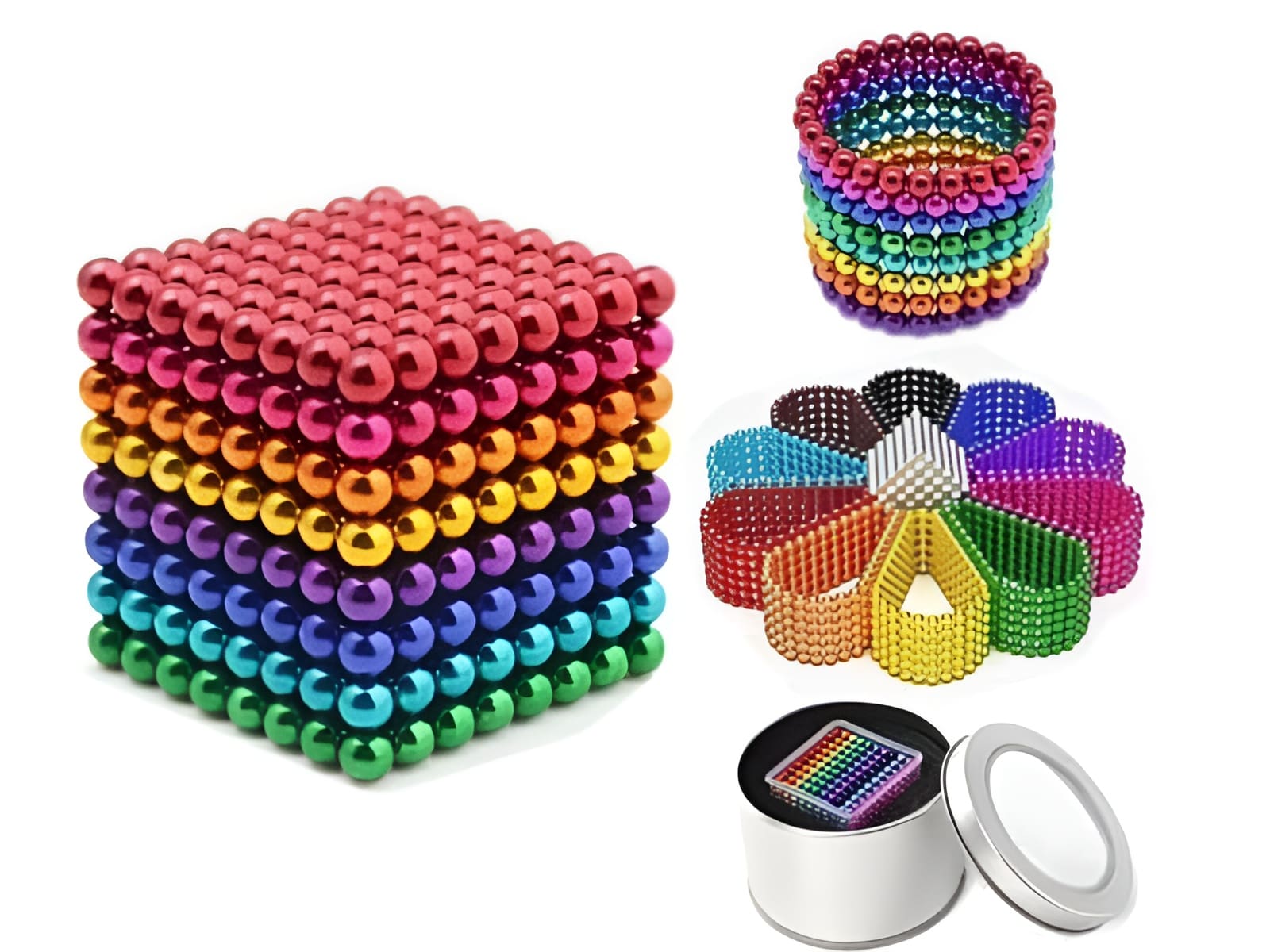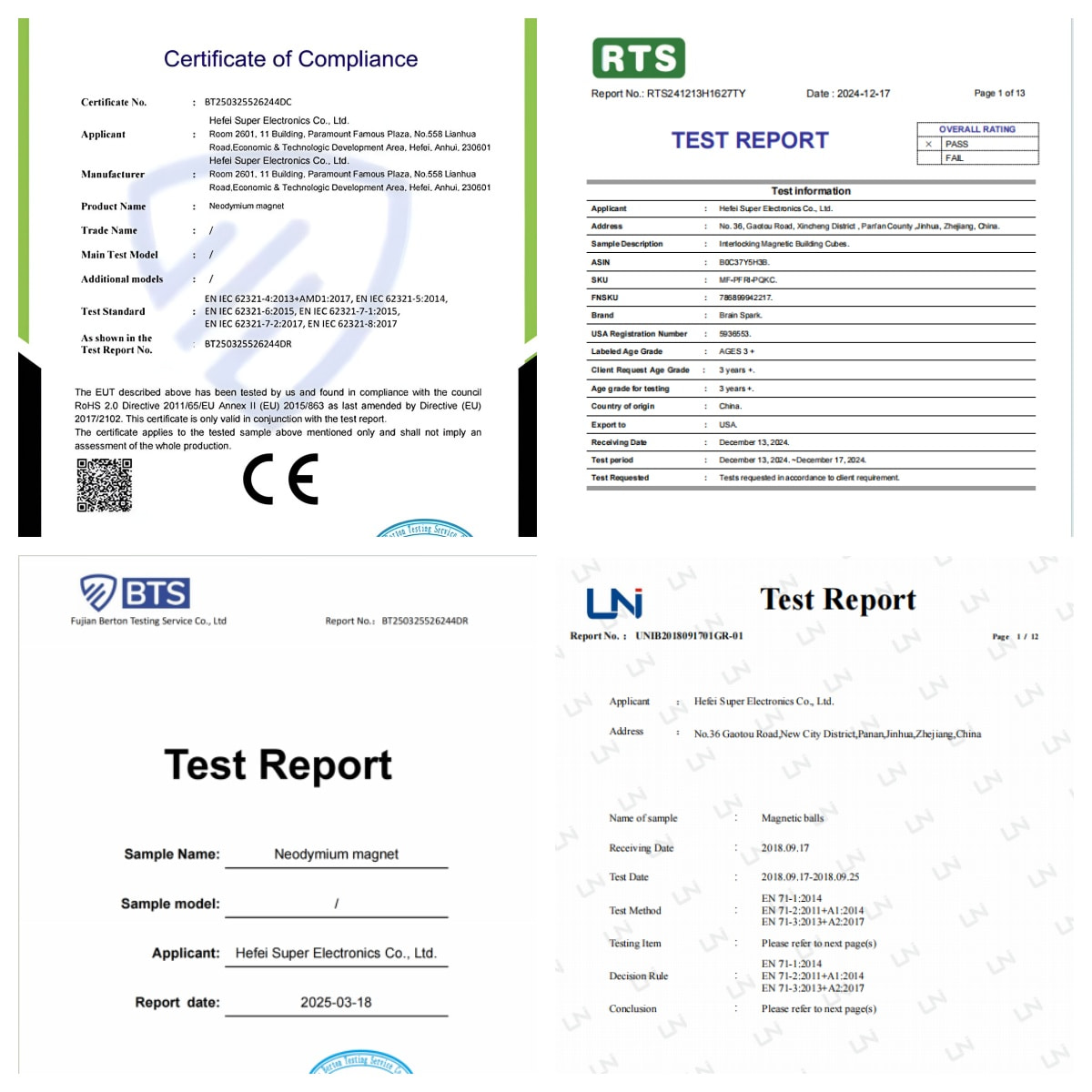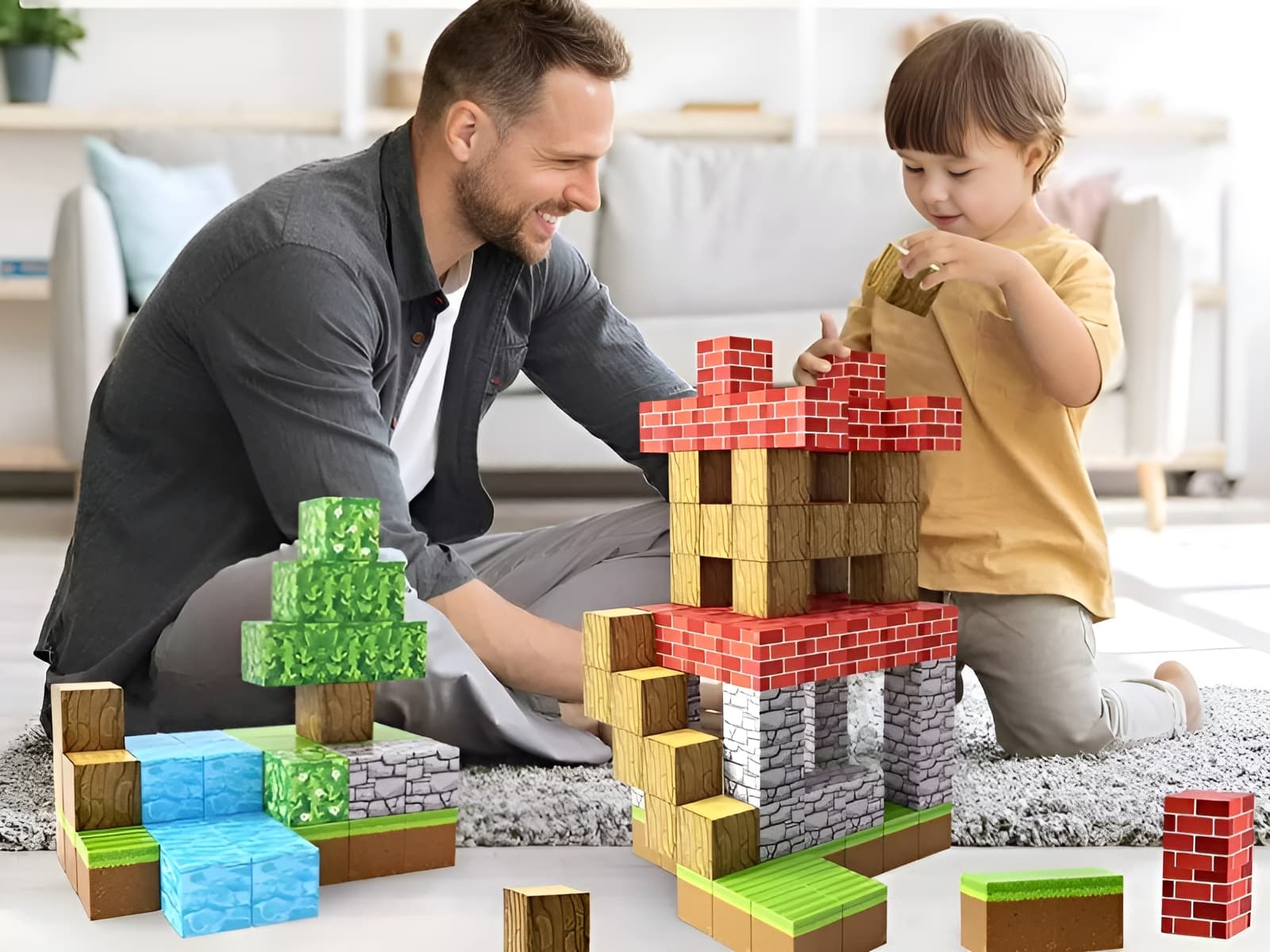 Hefei Super Electronics Co., Ltd.
Hefei Super Electronics Co., Ltd.
What Are You Looking For?
Neodymium magnetic toys such as buckyballs, magnetic blocks, and construction sets have gained popularity worldwide for their educational and recreational value. However, their small size and strong magnetic force also raise important safety concerns—especially when used by young children without supervision.

Neodymium magnets, commonly used in these toys, are incredibly strong. If accidentally swallowed, even two small magnets can attract each other through the walls of the digestive tract, potentially causing serious injury such as intestinal blockage or perforation. That’s why international safety standards are essential to ensure these toys are safe before reaching the hands of consumers.
The CE mark is a mandatory certification for toys sold in the European Economic Area. It proves that the product complies with health, safety, and environmental protection legislation. Toys with CE certification have undergone detailed risk assessments and are legally permitted to be marketed in Europe.
Closely tied to the CE mark, the EN71 standard consists of a series of European safety requirements specific to toys. For magnetic toys, EN71-1 tests mechanical and physical properties, while EN71-3 assesses the migration of hazardous elements, such as heavy metals. Products that meet EN71 are considered physically and chemically safe for children.

While CE and EN71 focus on performance and safety, the Material Safety Data Sheet (MSDS) offers full transparency about what’s inside the product. The MSDS outlines a toy’s raw materials, chemical properties, potential hazards, and handling instructions. This is especially important for retailers, importers, and parents who want to understand what materials children are exposed to during play.
Even with proper certification, supervision and common sense remain key:
Recommended Age: Magnetic toys with small parts are typically labeled for ages 14+, unless tested for younger age groups.
Adult Supervision: Always monitor children during use.
Storage: Keep toys away from toddlers or pets.
Product Check: Regularly inspect for broken or loose magnets.

Magnetic toys can be both fun and safe—when backed by certifications like CE, EN71, and a detailed MSDS. At our company, we prioritize compliance and transparency, ensuring that all our magnetic products meet the highest safety standards. Whether you're a retailer or parent, choosing certified magnetic toys provides peace of mind along with playful learning.
Hi! Click one of our members below to chat on